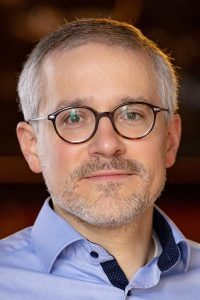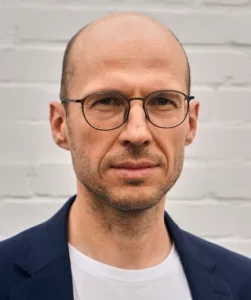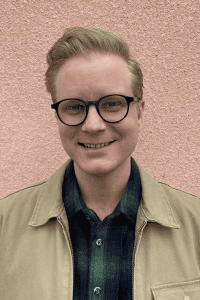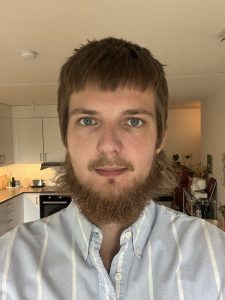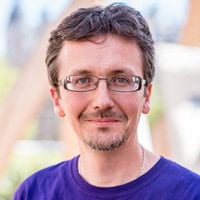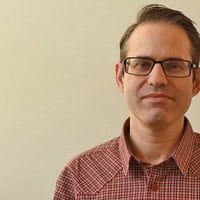Key researchers
Mike Hazas
Mike Hazas has a PhD in Mobile Computing from the University of Cambridge is a professor of human-Computer interaction at the Department of Information Technology at Uppsala University and leads the Digital Ecologies Lab at the same insitution. Mike´s research is concerned with everyday practices and digital technologies, and how they can be related to sustainability (energy demand and carbon emissions). Much of his recent work has focused on the proliferation of online services (streaming, social networking, gaming); and their invisible impacts due to the Internet and data centres. Mike has also spent significant time researching thermal comfort; and digital automation. I employ both qualitative and quantitative approaches.
Per Fors
Per Fors had a doctorate degree in industrial engineering and management at the Department of Civil and Industrial Engineering, Uppsala University. Currently he is a Teacher and researcher at the Division of Industrial Engineering and Management. His research is focusing on issues related to ICT, ethics and sustainability, and he teaches engineering ethics, ethics of technology, research ethics, sustainability management and more. Per was chair of IFIP TC9 Working Group 9 on ICT and Sustainable Development.
Ossian Nordgren
Ossian Nordgren is a PhD Student in Human-Computer Interaction at the department of information technology, Uppsala University. He has a masters degree in social anthropology from Stockholm University. Ossians research focuses on the relationship between the digital, social, and ecological. Previously he has studied the future imaginaries of Vietnamese Blockchain Professionals and the interrelationship between play and labor as experienced by Swedish Twtich.tv Streamers.
Daniel Pargman
Daniel Pargman has a Ph.D. in Communication studies with a specialization in human-machine interaction from the Department of Thematic Studies at Linköping University. Daniel leads a research group at KTH that does research in the intersection of sustainability and computing. He is interested in understanding and working towards a shift from polluting non-renewable fossil energy sources and implications for computing. The two broad questions that spurs his interest in computing and sustainability are: 1) What happens when exponential developments in computing bump into environmental or sustainability-related limits and 2) What is the role of ICT in the transformation to a more sustainable society (where people can live good lives within planetary boundaries).
Björn Hedin
Björn Hedin has a doctoral degree in media technology and interaction design from KTH Royal Institute of Technology, and works as an associate professor focusing on the individual’s role in a sustainable energy system, and how design can play a role in that. He has led and participated several research projects within this area. Björn has also done research in serious games and games for learning for energy conservation and promoting sustainable behaviours.
Daniel Schien
Daniel Schien is a Senior Lecturer in Computer Science at the University of Bristol, UK. His research aims at improving our understanding of the environmental impact from information and communication technologies (ICT) and the reduction of such impact. His research has pioneered new methods and tools to assess the carbon footprint of digital media which have been applied by major international media companies. Dan is currently leading the technical development of the DIMPACT tool (http://www.dimpact.org) to calculate organisational carbon footprints of digital services used by major digital media companies, including Netflix, the BBC, and Shibstedt. Dan’s work has been widely reported in the media, including Wired, The Times, BBC Television, and German National Radio.
Industry partners
Dataspelsbranschen
Dataspelsbranschen represents the Swedish games industry as a whole, from small game development studios to large publishers and distributors, but also the industry’s ecosystem such as games education and incubators for new companies.
Our mission is to create the best conditions for game development, to increase knowledge about games, and to be the voice of the Swedish gaming industry both in Sweden and internationally.
Candy Crush Saga, Battlefield and Minecraft are some of the world’s most popular games – and created in Sweden. To continue successful development and maintain competitiveness, conditions are needed for long-term sustainable growth.
Our member companies account for the majority of turnover and employment in the Swedish gaming industry. The companies create entertainment for billions of players worldwide.
PlayCreateGreen
PlayCreateGreen is a direct result of Bornholm Game Days 2019. At this industry event, more than 40 Nordic game companies decided that climate was the most important issue to address in the following year. Nordisk Games, therefore, offered to facilitate a climate group during 2019-2020 to make real change.
The climate group with representatives from Avalanche Studios Group, BetaDwarf, Embracer Group, Landfall Games, Massive Entertainment, Nordisk Games, SYBO, Reto Moto and Bornholm Game Days addressed several climate issues and soon realized that many others, like themselves, want to act but don’t know how to get started, what to do and who to talk to.
This is the reason why PlayCreateGreen.org was born – to share, inspire, and make real change possible for all game companies. In October 2020 version 1.0 of PlayCreateGreen was launched and Nordisk Games, Embracer Group, Landfall Games, Swedish Games Industry, Massive Entertainment and Advenimus have since taken upon them to contributed to the funds to continue PlayCreateGreen and develop the movement, community, and online handbook.
Advisory board
Info coming soon
